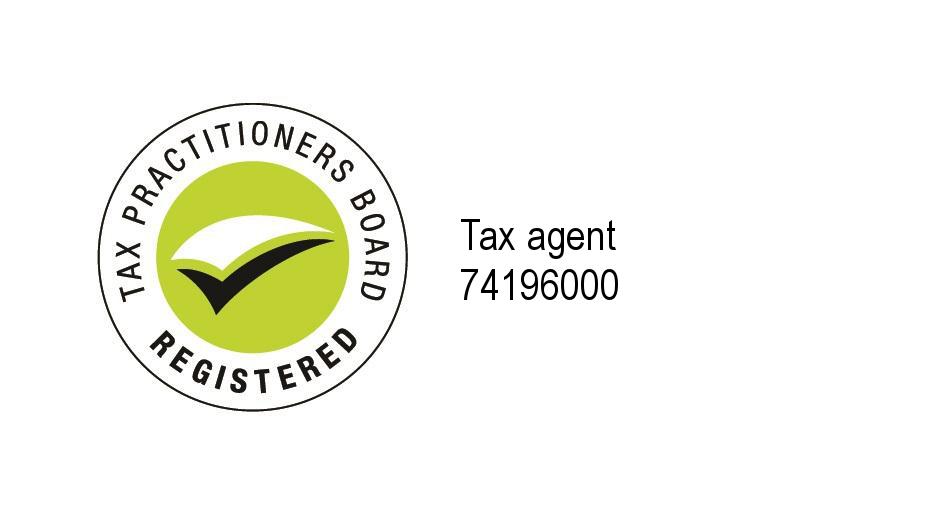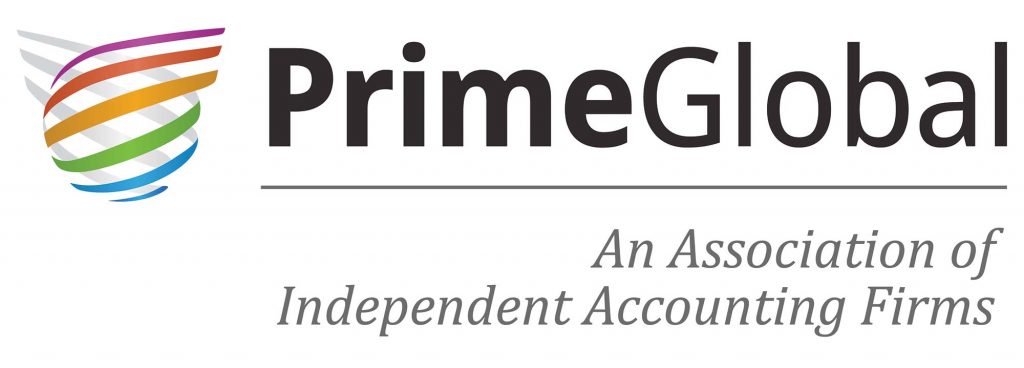In our February article we looked at aspects of the AAT decision in WYVW and Commissioner of Taxation [2023] AATA 4242 (WYVW). In particular, we discussed the types of documentation small businesses should keep so they can discharge their burden of proof in the event of a dispute with the ATO.
In this article we will consider other aspects of the WYVW decision, including penalties, the safe harbour provisions and the level of care expected of directors when engaging a tax agent.
Background
The taxpayer was director, secretary, and shareholder of numerous companies as well as unitholder in a number of unit trusts. She did not have formal accounting qualifications but did do some basic recording of bank transactions. She was heavily reliant on her tax agent, who according to the taxpayer, was responsible for preparing and maintaining financial accounts, ledgers, and unit trust registers for the group, in addition to preparing income tax returns. The case was primarily about whether unexplained deposits were income.
Application of penalties
The AAT held that imposing penalties was appropriate in this case, and thus had to determine the appropriate penalty rate, i.e., 75% for intentional disregard (as imposed on WYVW by the Commissioner), 50% on the basis the taxpayer was reckless, or 25% due to the taxpayer not taking reasonable care.
Per Senior Member Grigg’s decision:
… intentional disregard will be found where there has been dishonesty, where there has been a cognisant decision, an awareness on the part of the taxpayer, to make a false statement, and to leave that statement uncorrected. It is more than reckless disregard of or indifference to a taxation law.
Recklessness does not require a finding of dishonesty, and the intention of the taxpayer doesn’t play a role. However, conduct must have occurred that is more culpable than a failure to take reasonable care. The behaviour must be more than mere negligence and must amount to gross carelessness. It must fall “significantly short of the standard of care expected of a reasonable person in the same circumstances as the entity.”
The question is then whether the use of a tax agent affects the level of penalty imposed on the taxpayer.
The ‘I relied on my Tax Agent’ defence
The Explanatory Memorandum relating to the penalty provisions states:
Where a taxpayer uses a registered tax agent or other person to help prepare and lodge a BAS or tax return, the taxpayer will be vicariously liable for any penalties caused by the agent providing information that results in a shortfall amount. This includes the tax agent not taking reasonable care. The standard expected of a tax agent will be much higher than the standard expected of the client.
A taxpayer who relies upon the advice from a third party of a fact that is material to the preparation of the taxpayer’s return (e.g. a bank providing a statement of the amount of interest earned by the taxpayer) will not usually be liable for penalty if the advice is wrong, as taxpayers are ordinarily entitled to rely on such advice. However, if the taxpayer knew, or could reasonably be expected to have known or suspected that the advice was wrong, the taxpayer would risk penalty…
Therefore, even if a tax agent is engaged, it does not necessarily mean the taxpayer is absolved of all responsibility.
The taxpayer tried to argue she had shown reasonable care in maintaining financial records, including undertaking daily MYOB reconciliations, keeping extensive records, and asking her accountant if she was unsure of something.
The taxpayer lacked evidence to support any of her contentions. The AAT held that:
There are no records of any of these interactions that the Applicant describes. These were not simple transactions or transactions that were few in nature. It is implausible that there were no written instructions that could have been given to the Tribunal. It is also implausible that a registered tax agent would not confirm instructions/advice in writing, particularly in a complex family group such as exists here. There is no evidence of any attempt being made by the Applicant to obtain copies of meeting notes, etc. If the material was not voluntarily provided the Applicant could have asked the Tribunal to subpoena relevant material from her advisers.
Furthermore, the AAT stated that it “is unclear what instructions were given to the accountant and the advice given”, as she provided no evidence of the engagement, communications with or instructions provided to the tax agent, or any copy of tax advice provided.
Importantly, while the AAT acknowledged a taxpayer should be able to rely on their tax agent:
… this does not relieve the taxpayer of the requirement to take “reasonable care”, particularly one who is a director and trustee of some of the Group entities.
… Despite the significant number of transactions and amounts involved over the course of many years, the Applicant apparently has made no attempt to find the tax consequences of those transactions. The Applicant’s conduct was of a standard below what a reasonable person would expect of someone involved in these sorts of transactions and from someone who undertook the role of director of companies and trusts. She should have made it her business to have more involvement and to gain a better understanding of the Group’s activities. She should have asked questions and not just “assumed”. It is incumbent on all taxpayers to take responsibility for ITRs lodged on their behalf by their accountants. Accountants can only advise, and act based on a client’s instructions. It is for the taxpayer to appropriately and fully inform and instruct their tax agents and to ask questions or seek clarity where something is misunderstood.
The Applicant submitted that it was “beyond her skill and knowledge to ensure that the transactions undertaken by her and the entities in the Group were treated correctly for taxation purposes”…
There is no evidence the Applicant relied on her advisers “after making an independent assessment of the information or advice, having regard to (her) director’s knowledge of the corporation and the complexity of the structure and operations of the corporation”. In fact, her evidence was that she made no assessment of her adviser’s information or advice. (emphasis added)
The taxpayer was therefore found to be reckless notwithstanding she had a tax agent, with penalties imposed at 50%. The recklessness stems from the lack of independent evaluation, reconciliation or check of any kind in relation to the work prepared by the tax agent including the tax returns lodged on her behalf. Being a director, she should have been more involved and obtained an understanding of the activities.
Further, from a Corporations law perspective, Section 189 of the Corporations Act 2001 (Cth) only allows a director to rely on advice provided by others if the reliance was made in good faith and after making an independent assessment of the information or advice, having regard to the director’s knowledge of the corporation and the complexity of the structure and operations of the corporation.
Based on the above, taxpayers within complex groups cannot merely sign off on financial statements and income tax returns provided by their tax agent without any review.
20% uplift in penalties
Base penalties may be increased by 20% where a taxpayer took steps to prevent or obstruct the Commissioner from finding out about a shortfall amount, or the taxpayer has previously been subject to an administrative penalty. The Commissioner has no discretion to remit the 20% uplift, but taxpayers are able to apply to the AAT for remission.
The 20% uplift was remitted in this case, as the taxpayer co-operated during the audit process.
One factor considered was where numerous years are amended in the same audit, and the taxpayer only becomes aware of the earlier penalty at the same time as later years. In such a case it seems that the AAT believes it is not appropriate for the Commissioner to apply the 20% uplift.
Safe harbour
Under the safe harbour provisions, taxpayers are not liable to certain penalties if they provide all relevant information to the tax agent and the false or misleading statement did not result from intentional disregard or recklessness by the tax agent. The taxpayer has an evidential burden to prove that the tax agent was given all relevant taxation information.
In WYVW the taxpayer argued there was no intentional disregard of a taxation law or recklessness by the tax agent, arguing that the errors were “inadvertent oversights”.
The taxpayer’s case was not helped by the former tax agent not giving evidence. Senior Member Grigg found that the taxpayer’s evidence was general and vague, providing no detail in relation to the engagement of the tax agent. As the tax agent did not give evidence it could not be known whether their conduct involved negligence, intentional disregard for a taxation law, or even if they failed to follow instructions. The extent of the tax agent’s involvement in the activities of the Group and taxpayer could not be known.
The safe harbour provision did not apply as the taxpayer did not satisfy the burden to prove that all relevant information was provided to the tax agent. Even if that hurdle had been met, the finding of recklessness prevented the safe harbour from being available.
Shortfall Interest Charge (SIC)
It is only possible to object against SIC when its greater than 20% of the tax shortfall amount. Therefore, if the SIC is 20% or under, a taxpayer cannot object, and the AAT has no authority to determine whether the SIC imposed should be remitted. As a result, only one year’s SIC amounts could be considered by the AAT.
The ATO took over 5 years to reach a decision on the taxpayer’s objection. The AAT remitted the SIC for a period of 38 months when the ATO appeared to be inactive in dealing with the objection.
Interestingly, given the lack of evidence in relation to the other aspects of the case, the potential reduction of penalties and remission of the SIC, rather than a reduction in the tax shortfall may have been a driving force for the taxpayer to appeal to the AAT.
Key takeaways
In order for both the taxpayer and the tax agent to have the appropriate protection from penalties and the safe harbour provisions (and a potential lawsuit) respectively, engagements and ongoing instructions need to be in writing and kept by taxpayers and tax agents along with other records, as discussed in the previous article.
Clear and documented delineation of tasks between tax agent and taxpayer is crucial. Consider which party has responsibility for completing tasks such as dividend resolutions, trust resolutions, maintaining share and unit registers, maintaining ledgers, etc.? Tax agents need to ensure their clients are aware what they are responsible for, as this could be a cause of dispute if not clearly defined.
If draft tax returns are sent to a client and signed and returned within five minutes, does that suggest the taxpayer has shown a reasonable amount of care in reviewing the returns? As can be seen in WYVW, it is not enough for directors and trustees to rely on their tax agent. They must also take responsibility for returns lodged on their behalf.
Finally, given the slow speed of some ATO disputes, it may be prudent to maintain all documents beyond the 5 years required under income tax legislation (7 years under the Corporations Act 2001), to ensure the onus of proof can be satisfied.
——-
![]()
Found this article insightful? Subscribe to our newsletter “The Assessment” and receive more articles like this every month!
![]()
Need more advice? Contact us via email or on 03 8662 3200



